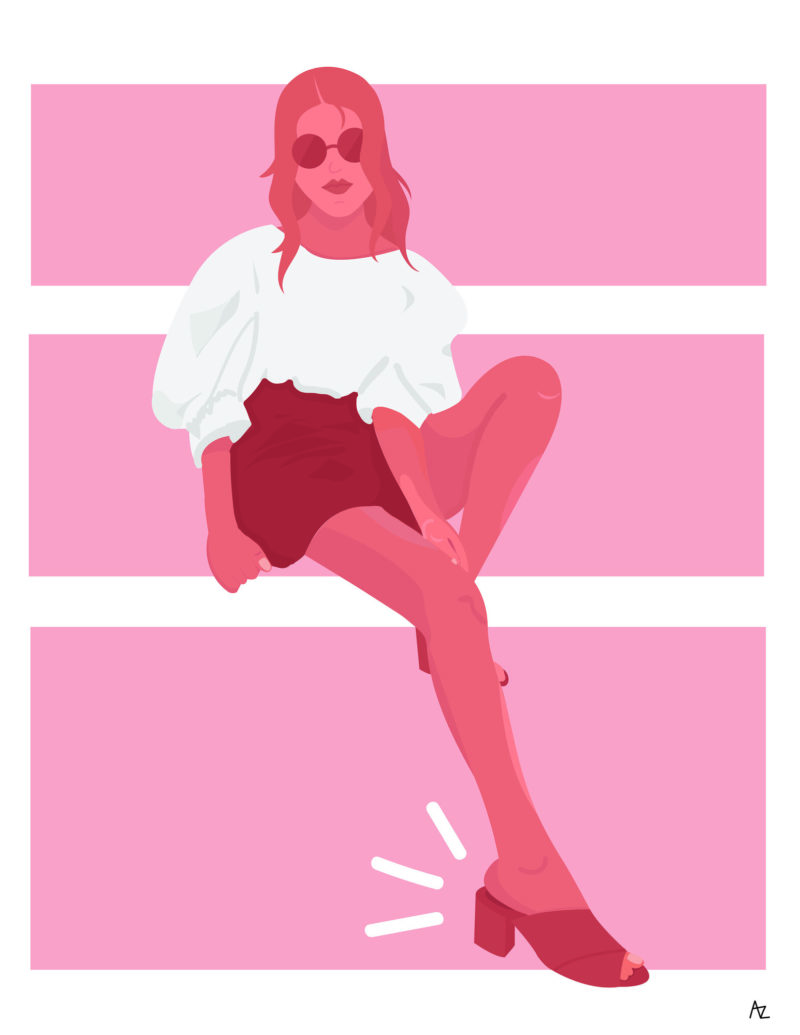When you’re bustling through Target—also known as heaven—there’s a high probability that you’ve filled your shopping cart with tons of must-have items. From vibrant clothes and shoes to deliciously scented candles and decor for your living space, you’ve found yourself shopping for new products once again. With a vast selection available at your fingertips, there are so many options to choose from—brands upon brands carrying similar items with different price tags attached to them.
Have you ever stopped at a selection of product options and wondered how they were made? Who took the time to tether the fabric together of the new rug you’re purchasing? Whose labor went into crafting your new earrings? Sustainable and ethical fashion poses these important questions and shines a light on fair trade practices to ensure that you, as the consumer, are supporting brands and businesses that ethically make products with social integrity and intentionality.
According to the U.S. Department of Labor, “51 countries use child labor in at least one part of their garment or jewelery supply chains.” Unfortunately, this means there may be many products that you own that have been created by children who are enslaved, forced to labor illegally and, oftentimes, abused and working in unimaginable conditions.
There may be many products that you own that have been created by children who are enslaved, forced to labor illegally and, oftentimes, abused and working in unimaginable conditions.
How can you avoid supporting companies that create everyday products in unethical conditions? Here are a few key ways to determine whether your favorite brands are fair trade or not:
Evaluate the company’s transparency.
This is a huge indicator whether or not a brand is honest and upfront about their processes. Research and review the company’s annual reports. Some companies release an impact report or a document that highlights labor efforts and numbers. This information should be accessible to the public because consumers have the right to know the behind-the-scenes practices of businesses where they purchase products.
Consumers have the right to know the behind-the-scenes practices of businesses where they purchase products.
If you come up empty-handed while looking for information regarding how a company’s products are made, then this may be an indicator that the company is hiding something. Details regarding how they do business should not be a secret. Transparency builds trust directly with a brand’s fanbase/customer base. It allows for both consumers and investors to find grounds in which they can fully support any given business.
Ask whether a company knows their manufacturers or makers by name.
There are many large fair trade businesses, such as hand-crafted jewelry company Trades of Hope, that put a name behind each product created. Trades of Hope includes the name of each artisan who created the product. Customers not only get to enjoy the practicality of a newly woven handbag or beautifully beaded necklace, but they get to know the name of the person who created the product. Similar companies will often also share the stories of artisans on promotional brochures, social media channels and their websites in order to build connection and trust through transparency.
Not every company has the bandwidth to share the names of their products’ makers, but any shared information or communication about artisans says a lot about what the company values. If inquiries regarding who makes these products are constantly shut down rather than encouraged, there might be some secrets the brand is hiding.
Check the label.
This is a simple yet really important thing to get in the habit of doing. Brands usually communicate their standards of business by labeling their products a certain way. If a brand is a Fair Trade Federation member—such as Trades of Hope, Raven + Lily or Ella Ember—they’ll usually indicate it by including that within their labels.
By these brands and companies being members of the FTF, B-Corporation or World Trade Organization, they are committed to stand for safe working conditions, no child labor, women’s rights, providing workers with living wages and a holistic approach to employment. If there is no easily identifiable information available, consumers can also call or email to ask more questions about their sustainability efforts.
Sometimes, when consumers look at a product, they only think about the price tag or the convenience of buying it. Yet, after researching and learning more about how things are made, you can educate yourself to shop both smart and ethically.











